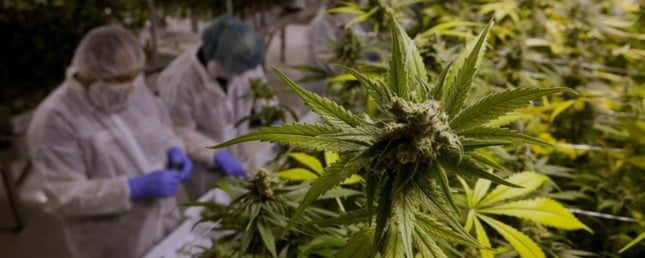Current Good Manufacturing Practices (cGMP) are a set of regulations that ensure the safety, quality, and consistency of a variety of products. GMP audits are conducted by independent third-party auditors to assess compliance with GMP regulations.
Every industry regulated by the FDA has its own guidelines for cGMPs. Unlike the food & beverage, dietary supplement, pharmaceutical, and cosmetics industries, cannabis is federally illegal in the United States, meaning that there are no federal regulations for cGMPs in the cannabis industry.
Even so, cGMP audits are becoming increasingly important as more and more states legalize the production and sale of cannabis products, with some states requiring third-party cGMP audits.
DURING THE AUDIT
Cannabis Safety & Quality (CSQ) created a cGMP audit that pulls from a collection of these industry regulations while including necessary cannabis-specific requirements. During a CSQ cGMP audit, a variety of factors are put under the microscope, including:
- Processing Controls: Labeling, Allergen management, Environmental monitoring, cross contamination prevention, etc.
- Non-Conforming goods: Processes in place for holding, releasing, identifying and tracing non-conforming raw materials, work-in-progress finished products, return products. Etc. This also includes a plan for if a product is recalled.)
- Supplier Approval Program: Documented procedures for approving suppliers of raw materials and packaging materials.
- Cleaning and Sanitation: Cleaning schedule that ensures the environment is sanitary for cannabis production.
- Chemical Controls: Process for storage, approval, and labeling of chemicals.
- Pest Control: Programs and personnel in charge of preventing infestations
- Water and Air Quality: Established practices to ensure all water, steam, and ice used onsite is potable and compliant, and that no harmful gases come in contact with the product through proper ventilation.
- Waste: Cannabis waste containers should be kept sealed and restricted to authorized personnel, and clearly identified according to regulatory requirements.
- Foreign Matter: Process for detection and the control of foreign matters such as wood, glass, brittle plastic, ceramics, etc.
- Storage and Distribution: Dry Storage and Temperature-controlled storage procedures, plus processes for receiving raw materials and shipping finished products.
- Facility and Equipment Design: Location, layout, and internal structures all must mitigate opportunities for cross contamination, and all equipment and cannabis contact surfaces must be easily cleanable and maintained.
- Maintenance and Calibration: Schedule for performing Preventative Maintenance on the building and/or necessary equipment, and proof of appropriate calibration.
- Good Hygiene Practices: Illness and Injury prevention for employees, personal hygiene expectations to minimize potential product damage
- Security: Plan for preventing theft or intentional acts of adulteration, and procedure for documenting visitors.
- Last but certainly not least- Internal Audits and Inspections: Established practices for verifying the effectiveness of your cannabis safety management system.

BEFORE & AFTER THE AUDIT
In preparation for an audit, there are a few ways to ensure that your cannabis company is in good standing.
- Make sure that your cGMP documentation is up-to-date and accurate.
- Train your employees on cGMP requirements.
- Conduct regular mock audits to identify any areas where you need to improve.
Once completed, the findings of the cGMP audit will be used to identify any areas where your company needs to improve its cGMP compliance. From there, you are encouraged to develop a corrective action plan to address the identified areas of non-compliance.
WHY ARE CANNABIS-SPECIFIC CGMP AUDITS NECESSARY?
State regulators requiring third-party cGMP audits for cannabis license holders is a step in the right direction because today's cannabis industry relies far too much on final product testing to prove safety and quality. Final product testing alone is not enough to ensure the safety of consumers. In most cases, final product testing is completed on a small sample batch, so manufacturers are not wasting the final product on sampling and testing.
For example, if a manufacturer produces one million dietary supplements, the manufacturer might only test 100 tablets from that batch. This means that if cGMPs are not being followed and there is no consistency in the safety of producing that product, then some of the products may be safe for consumption, while others may not.
Overall, performing regular cGMP audits can help to ensure the safety, quality, and consistency of your products. Not to mention, they can protect your company from regulatory fines and other penalties.

COMMENTS